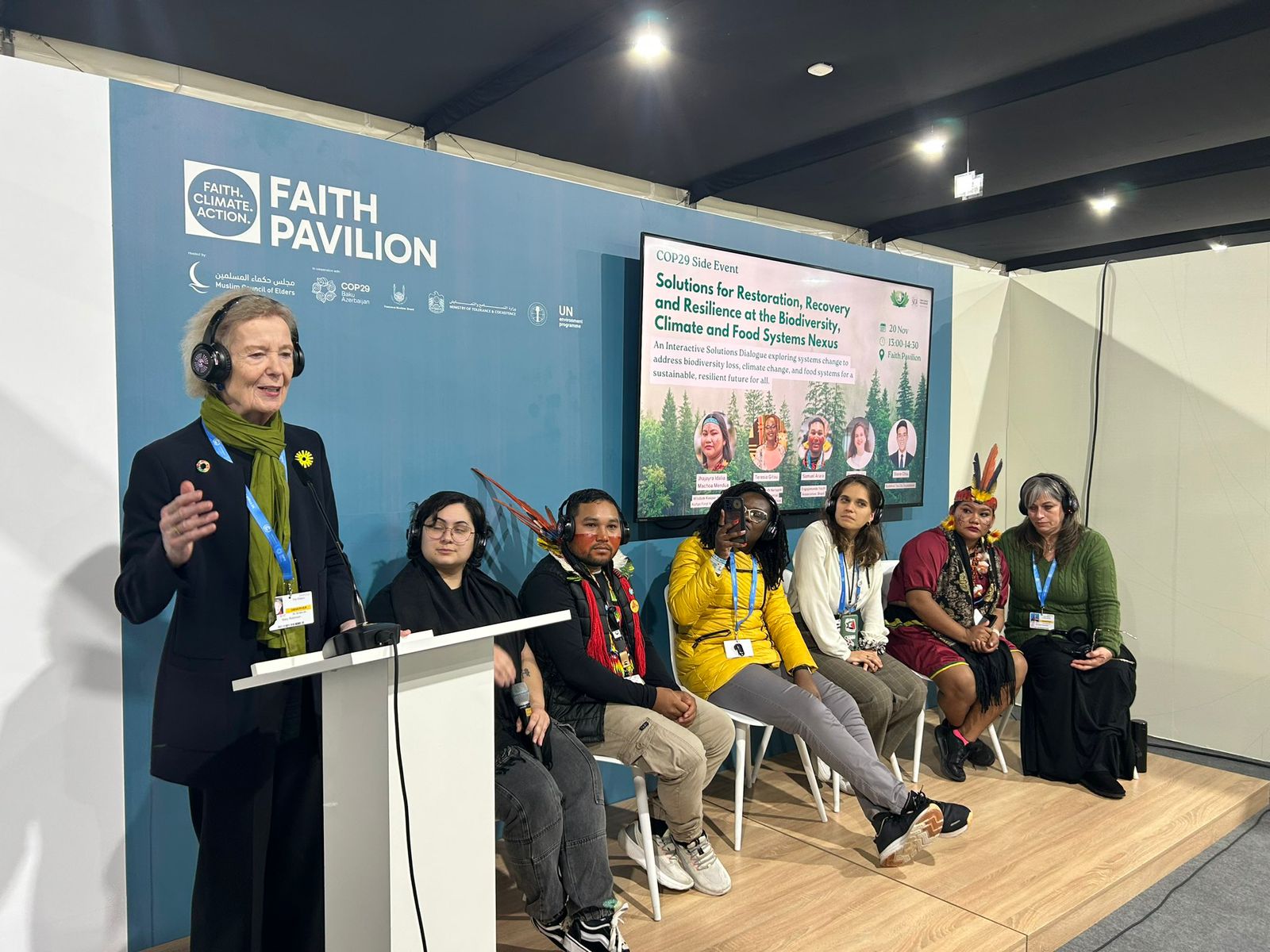The fifth day of the Faith Pavilion at COP28 witnessed five dialogue sessions, with 17 speakers participating. The discussions focused on drawing inspiration and learning from indigenous communities regarding the climate crisis. They also addressed ways to overcome barriers to a just transition in the energy sector, investment in climate change mitigation, and supporting children displaced due to the climate crisis through community-based faith-sensitive responses.
The first session, "Inspiration and Learning from Indigenous Communities," explored the perspectives of indigenous populations on climate change and the challenges faced by those living on the coasts of Panama due to rising sea levels and various climate-related disasters. Participants emphasized the role of religious communities in uniting efforts to address the challenges of climate change affecting indigenous lands and lifestyles.
The second session, titled "Overcoming Barriers to a Just Transition," highlighted the importance of enhancing collaboration and constructive dialogue between religious entities, financial institutions, business leaders, and governments to make a just energy transition a reality. The discussion delved into overcoming obstacles to investing in climate change mitigation and adaptation in emerging markets, as well as the potential leadership role of companies in driving a fair transition.
The third session, "Supporting Children Displaced Due to the Climate Crisis," underscored the significance of supporting climate-displaced children through religious community responses. It explored integrating religious concepts and values into providing psychological, mental, and social support for displaced children in various regions affected by the climate crisis. Participants noted the severe consequences of weather-related incidents and climate change globally, particularly on displaced children, highlighting the urgent need for collective insights and partnerships to safeguard these children from the threats posed by climate change.
The fourth session, "A Just Transition for Africa: Mining, Technology Minerals, and Climate Change Mitigation," focused on balancing the extraction of technological minerals, vital for modern climate solutions, with religious and ethical considerations. It emphasized the pivotal role of religions in shaping environmentally and ethically responsible mining practices. The session integrated religious perspectives with practical challenges, aiming to forge new paths for a just technological future that preserves the environment.
In the fifth Fireside Chat session, "A Case Study in Faith-Based Advocacy and Witness: The Episcopal Church, The Gwich'in People and ‘The Place Where Life Begins," speakers discussed efforts to prevent drilling in a fragile part of the National Wildlife Refuge in the Arctic and the significant impacts of climate change. They also highlighted the crucial role of faith-based advocacy in addressing global challenges, including wars, conflicts, and the climate change crisis.
The Faith Pavilion at COP28 hosts a diverse array of religious leaders, scholars, environmental experts, youth, and representatives of indigenous peoples to explore and raise awareness about climate change challenges. The Pavilion will feature a total of 70 dialogue sessions with over 300 speakers from around the world.

